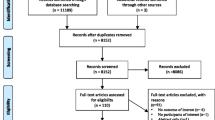Abstract
Objective: To determine the effect on resident attitudes of policies regarding pharmaceutical representative interactions with residents.
Design: Cross-sectional survey.
Setting: National sample of U.S. family medicine residencies.
Participants: Three hundred seventy-eight residents from 14 randomly selected programs. Seven programs had written policies and restrictions (restricted programs), and seven had no such restriction or guideline (free programs).
Measurements and main results: The authors assessed resident attitudes regarding the perception of benefit from pharmaceutical representative activities, the usefulness of various sources of drug information, and the appropriateness of accepting gifts from a pharmaceutical representative. There were 265/378 respondents (70% response rate). Residents from restricted programs reported fewer benefits from pharmaceutical representative interactions and were less likely to feel that acceptance of gifts was appropriate. The amount of exposure to pharmaceutical representatives was positively correlated with perceived benefit and negatively correlated with ratings of appropriateness of gift acceptance.
Conclusion: Regulatory policies can influence resident attitudes and perceptions. Training programs should develop written policies to help guide resident-pharmaceutical representative interactions.
Similar content being viewed by others
References
Scarpinato L. Pharmaceutical representatives (letter). J Gen Intern Med. 1991;6:181.
American College of Physicians. Physicians and the pharmaceutical industry. Ann Intern Med. 1990;112:624–6.
Miller K, Barza M, Curtis L, et al. Undesirable marketing practices in the pharmaceutical industry. N Engl J Med. 1985;313:54.
Mick T. Pharmaceutical funding and medical students. JAMA. 1991;265:659, 662–4.
Chren M, Landefeld S, Murray T. Doctors, drug companies, and gifts. JAMA. 1989;262:3448–51.
Page L. Profession, feds tighten lid on gifts. Am Med News. 1991;Oct 28:1, 26–27.
Council on Ethical and Judicial Affairs of the American Medical Association. Gifts to physicians from industry. JAMA. 1991;265:501.
Lurie N, Rich EC, Simpson DE, et al. Pharmaceutical representatives in academic medical centers: interaction with faculty and housestaff. J Gen Intern Med. 1990;5:240–3.
McKinney WP, Schiedermayer DL, Lurie N, Simpson DE, Goodman JL, Rich EC. Attitudes of internal medicine faculty and residents toward professional interaction with pharmaceutical sales representatives. JAMA. 1990;264:1693–7.
Shaughnessy AF. Drug promotion in a family medicine training center. JAMA. 1988;260:926.
Brotzman GL, Mark DH. Policies regulating the activities of pharmaceutical representatives in residency programs. J Fam Pract. 1992;34:54–7.
Author information
Authors and Affiliations
Additional information
Supported by an educational grant from Columbia Hospital, Milwaukee, Wisconsin.
Rights and permissions
About this article
Cite this article
Brotzman, G.L., Mark, D.H. The effect on resident attitudes of regulatory policies regarding pharmaceutical representative activities. J Gen Intern Med 8, 130–134 (1993). https://doi.org/10.1007/BF02599757
Issue Date:
DOI: https://doi.org/10.1007/BF02599757




